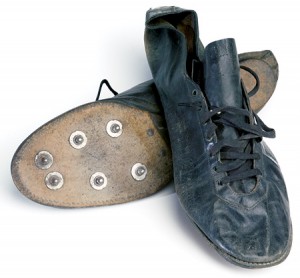Professional excellence may be best achieved through the ideals of amateurism.
Following my appointment as academic vice president, I received many kind notes from faculty colleagues. As the congratulations came in, I thought of sobering remarks by Hugh Nibley:
Anyone can become a dean, a professor, a department head, a chancellor, or a custodian by appointment—it has happened thousands of times; but since the world began, no one has ever become an artist, a scientist, or a scholar by appointment. The professional may be a dud, but to get any recognition, the amateur has to be good. [“The Day of the Amateur,” Brother Brigham Challenges the Saints, ed. Don E. Norton and Shirley S. Ricks (Salt Lake City: Deseret Book; Provo: FARMS, 1994), p. 303]
Nibley aptly reminds us that true excellence comes not by appointment but by accomplishment. He posits a link between excellence and amateurism. At first blush, this may seem counterintuitive. Normally we presume the reverse: the professional has to be good while the amateur may be a dud. But I want to explore the less intuitive connection between amateurism and academic excellence because I think it holds a key to the “more excellent way” (1 Cor. 12:31) we are called to pursue at BYU.
Although I recognize that the word amateur often has pejorative connotations, I am personally drawn to the idea and ideal of the amateur. I generally prefer amateur to professional athletics and deplore the intrusion of a professional ethic into lower levels of athletics—until even youth sports are deadly serious, drained of the joy of the game by the relentless pursuit of quasi-professional athletic excellence. I am likewise suspicious of advertisers’ attempts to convince me to hire professionals because as an amateur I would surely botch the job. We live in the age of the professional. I long for the age of the amateur, when a da Vinci could excel in science and art and a Newton and a Leibniz could not only each independently invent calculus but explore moral philosophy and theology as well.
The word amateur derives from the Latin for “love.” An amateur is at root a lover—a lover of sport, science, art, and so forth. It is this sense of amateur that I believe we must preserve if we are to achieve a more excellent way. There is much to recommend the professional ethic, including rigor, methodology, high standards of review, and so forth. Yet I hope we never cease to be amateurs in our professions—that is, passionate devotees of our disciplines.

The film Chariots of Fire is organized around the contrast between the professional and the amateur. The movie tells the true story of Harold Abrahams and Eric Liddell—both gifted sprinters and both, eventually, gold medalists in the 1924 Olympics. Abrahams exemplifies the spirit of the professional: he is driven, highly coached, obsessed with winning and personal glory. Liddell, by contrast, embodies the spirit of the amateur: he is joyous, heartfelt, animated by the love of running and the glory of God. Abrahams runs on his nerves; when asked why he runs, he says winning is a weapon against pervasive anti-Semitism. Liddell runs from his heart; he says he runs for God.
We see this contrast in their respective running styles. Abrahams’ running is technically sophisticated and fierce; he scowls his way across the finish line. By contrast, Liddell runs like a wild animal across the hillsides. At a certain point in each race, Liddell leans back his head, opens his mouth, and turns on the jets—abandoning himself to the pure expression of his divine gift. This accurate portrayal of Liddell’s running style symbolizes that his running is inspired. Inspire literally means “breathed into” by God. Liddell’s inspired passion for his sport is captured by a famous line from the movie spoken to his sister Jenny, who is worried that he is forgetting his higher commitment to God and to an eventual mission to China:
I believe that God made me for a purpose. For China. But He also made me fast. And when I run, I feel His pleasure. To give it up would be to hold Him in contempt. You were right. It’s not just fun. To win is to honor Him.
Liddell is required to choose between God and a possible Olympic gold medal. His qualifying heat for the 100-meter dash is scheduled for Sunday. Against great pressure, including from the Prince of Wales, he refuses to violate the Sabbath. Fortunately, he is given a chance to run the 400-meter dash instead and wins the gold.
As an amateur runner, Eric Liddell exemplified a more excellent way to greatness—a way rooted in love for his discipline and the divine. I see Liddell as a model for the kind of excellence we should seek at BYU—in athletics and in academics. Most of you will agree that student-athletes and coaches need to be committed not just to winning but to the larger purposes of the university. By the same token, faculty need not only to run like the wind, academically speaking, but to run for God; delight in the intellectual gifts that make us strong of judgment and quick of wit, yet exercise them in the context of our covenants; pursue our careers with vigor, not for laud but for love. Which is to say that we need to be professionally excellent faculty who retain the spirit of the amateur. Ours should be a more excellent way to academic excellence.
For men and women of Christ in any profession, covenants must come first. Faithfulness does not guarantee we’ll succeed in our careers, but lack of it guarantees we’ll fail in the only vocation that really matters.
I have said much about the need for us to pursue an oxymoronic path in our quest for a more excellent academic way: as amateur professionals or professional amateurs. Now a few cautionary remarks on excellence itself.
In the academy all want excellence, most claim to have it, and we think we know it when we see it, though there is little agreement as to what it really means. I feel misgivings about most polls that rank academic merit. This is based on skepticism that you can assign weights to indicators as various as class size, alumni giving, and reputation among uninformed people like me and come out with a precise ranking of excellence. I worry that the popularity of such rankings marks a trend toward consumerism in education.
But I have a deeper concern about the uncritical pursuit of excellence. Excellence was originally a pagan concept. It comes from the Greek areté, which means being the best, whether as an athlete or warrior, sculptor or shoemaker, poet or prostitute.

Christianity has traditionally been ambivalent about this ideal of excellence. The desire to excel is generally wrapped up with pride, vanity, selfishness, and other attitudes opposed to Christian humility, meekness, and cooperation. It is not surprising, therefore, that the Lord chastizes W. W. Phelps because “he seeketh to excel” (D&C 58:41). Our contemporary ears may be tone deaf to the divine dissonance regarding the word excel here. We might say, “I thought God wants us to excel.” Well, He wants us to be good. And He expects us to do our very best but not to lust for excellence as the world does. Hence Brother Phelps is roundly rebuked, “for he seeketh to excel, and he is not sufficiently meek before me.” Brother Phelps evidently wanted to excel in the world’s way: he wanted to be better than anyone else.
A Hellenized Jew, Paul daily negotiated the tension between the Greek culture of excellence and the Christian culture of humility. He knew about the problematic pagan connotations of areté; he also knew its power. The phrase “a more excellent way” derives from Paul’s first epistle to the Corinthian Saints. Corinth was the site of the Isthmian Games, whose fame rivaled that of the Olympics. Paul alludes to these games, encouraging the Saints to devote themselves to righteousness with the same dedication athletes bring to the pursuit of victory:
Do you not know that in a race all the runners compete, but only one receives the prize? So run that you may obtain it.
Every athlete exercises self-control in all things. They do it to receive a perishable wreath, but we an imperishable. [RSV, 1 Cor. 9:24–25]
Paul co-opts the Greek ideal of athletic excellence to describe the Christian quest for perfection. Christians must strive for excellence in the race of life—not for a fading crown of laurel leaves but for an immortal crown. Paul later describes his own life in such terms:
I have finished the race, I have kept the faith.
Henceforth there is laid up for me the crown of righteousness, which the Lord, the righteous judge, will award to me on that Day, and not only to me but also to all who have loved his appearing.[RSV, 2 Tim. 4:7–8]
For Paul, Christian excellence entails the same striving and effort as does Greek excellence—just as does the academic excellence we seek at BYU. The Christian, however, doesn’t look sideways at his competitors but upward to a “righteous judge” who passes out victor’s crowns to all who love Him. At BYU we too should run for God.
This is a more excellent way to professional excellence. It is the way of pure love. Areté is grounded on agape—that is, excellence on charity. In fact, the phrase “a more excellent way” serves as a bridge to Paul’s great discourse on charity. Charity is the more excellent way.
I believe our only hope to find a more excellent way at BYU is through charity, the pure love of Christ. May we bring this pure love to our professions and qualify for crowns that never fade.
This article is condensed from BYU academic vice president John Tanner’s address “Notes from an Amateur on Excellence,” given to faculty at the 2004 Annual University Conference on Aug. 24, 2004. The full text is available online at more.byu.edu/Tanner.






